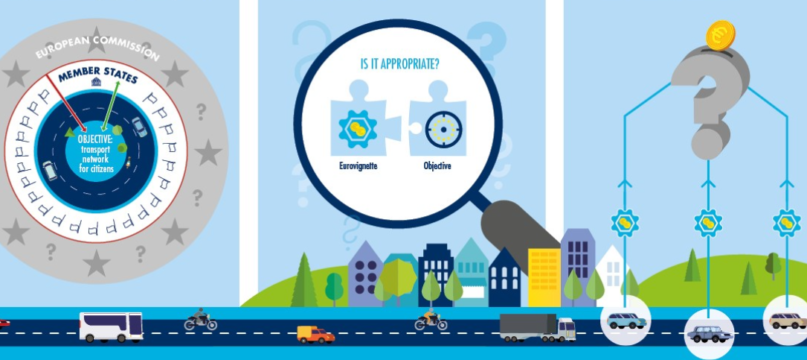
On 22 January, FIA Region I released a new legal study concluding that the European Commission has limited legal scope when it comes to extending the Eurovignette directive to passenger cars.
The Commission’s proposal to reform Directive 1999/62/EC, with the aim to harmonise road charging of passenger cars at EU level, has been buried in the Commission’s extensive Mobility Package.
FIA Region I commissioned independent research to examine if the Eurovignette proposal, as it stands, falls within the European Union’s legal competence. The study concludes that the European Commission does not have a sufficiently strong legal basis to justify an extension of the Eurovignette to passenger cars and that member states are in the best position to decide upon national charging systems for passenger cars.
The study emphasises that the Commission’s objectives, a well-funded and sustainable transport network for citizens, can be more effectively achieved by member state taxation and charging policies. A uniform system on passenger car road charging will not give added value to Europeans.
Before introducing road pricing measures, the study notes, a thorough analysis should have been done to assess whether the Eurovignette is the most appropriate measure to address the Commission’s goal. There is no certainty that the Eurovignette will ensure sufficient funding for road infrastructure investment and maintenance as member states can decide freely not to impose the financial burdens at all.
FIA Region I Director General, Laurianne Krid said, “This study shows that the rationale for the Commission’s proposal to tax passenger cars is based on shaky legal grounds at best. The European Parliament should do its best to represent citizens interests’ and not penalise mobility. We firmly believe that member states should retain control over whether or not to introduce road pricing for passenger cars, and in which form.”
[END]
Notes to editors
FIA Region I commissioned a study which examined the Reform of Directive 1999/62/EC EU in the context of EU competence, in particular following the principles of subsidiarity as set out in Article 5 (3) of the Treaty on European Union and proportionality as set out in Article 5 (4) of the Treaty on European Union. The study was carried out by Prof Dr Martin Nettesheim from the University of Tübingen. The study states that the objectives chosen by the European Commission do not address a transnational problem concerning passenger cars. Discrimination across borders, which may have been a valid objective, is already prohibited on the basis of article 18 and 20 Treaty on the Functioning of the European Union and is therefore no reason for the extension of the Eurovignette to passenger cars.
The study also concludes that the amendment of the directive does not create any genuine European added value as far as the regulation of non-competitive transport is concerned. A regime which obliges Member States to abolish charging systems without requiring the introduction of toll systems amounts to regulation for the sake of regulation. European added value cannot be achieved by the standardisation of road charging for all vehicles and all roads (outside the competitive sector), because uniformity is not an added value per se.
About FIA Region I
The FIA Region I office, based in Brussels, is a consumer body representing 113 Mobility Clubs and their 37 million members from across Europe, the Middle East and Africa. The FIA represents the interest of these members as motorists, public transport users, pedestrians and tourists. The FIA’s primary goal is to secure a mobility that is safe, affordable, sustainable and efficient. With these aims in mind, the FIA Region I work focuses on Road Safety, Consumer Protection, Environmental Protection, and the promotion of Sustainable Motoring. www.fiaregion1.com
Contact:
Andrea Campbell
Head of Communications, FIA Region I
acampbell@fia.com
+32 2 282 0813